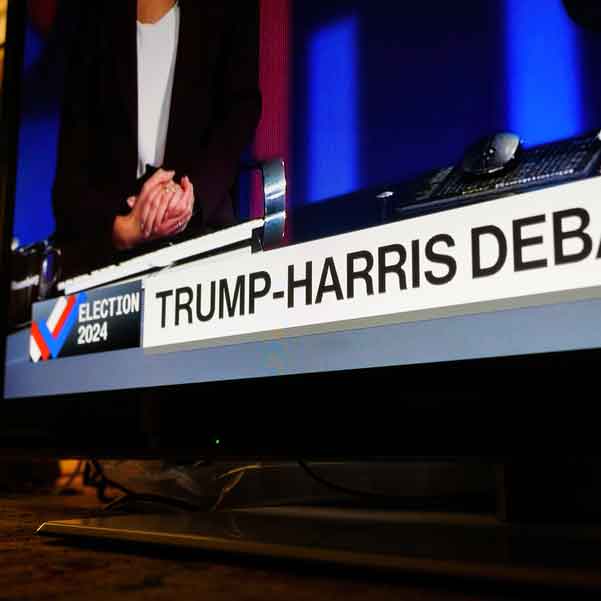ABC News has firmly dismissed charges of any wrongdoing following the hotly debated presidential debate between Vice President Kamala Harris and ex-President Donald Trump.
The allegations, which have seen considerable support among Trump followers, suggest that ABC News introduced unfair advantages for Harris during the September 10 debate in Philadelphia, Pennsylvania.
The scandal began when an anonymous person, claiming to be a whistleblower, shared an affidavit online alleging that ABC News had engaged in practices that unfairly favored Harris. These unverified claims suggested that ABC News provided Harris’ team with sample questions, promised to fact-check Trump only, and agreed to steer clear of certain topics at the request of the Harris campaign.
However, ABC News immediately responded to these accusations, saying, “We followed the debate rules that both campaigns agreed on and which clearly state: No topics or questions will be shared in advance with campaigns or candidates.”
The network reiterated its commitment to fairness and strict adherence to the established debate rules, which took place at the National Constitution Center without a live audience.
Trump, in a conversation the morning after the debate, voiced his displeasure with the moderators’ handling of the debate. He portrayed the debate as one of his strongest performances, but expressed irritation with moderators David Muir and Linsey Davis for their frequent “corrections” during his exchange with Harris. Trump commented that it felt like he was up against three adversaries: Vice President Harris and the two ABC News moderators.
In response to the dispute, Republican Congressman Dan Meuser has indicated his plans to summon ABC News officials for a House hearing on the allegations. This development has further escalated the dispute over the event’s fairness and the role of media outlets in political dialogues.
The Harris campaign has refrained from commenting on the accusations of misconduct, but they have voiced satisfaction with the Vice President’s performance, with Harris informing her supporters that it was a successful day.
Interestingly, the Harris team has proposed a second debate in October, a proposition that Trump initially seemed reluctant to accept. He indicated in an interview that he might be less willing to participate, referencing his perception of a successful first debate.
The debate adhered to a stringent set of rules to which both campaigns agreed. These included 90 minutes of discussion time with two commercial intermissions, no audience, and particular guidelines for question formats and speaking turns.
A coin toss decided the location of the lecterns and the order of closing statements. Trump won the toss and elected to deliver the final closing statement. The debate format restricted candidates from directly questioning each other, with the moderators posing all questions.
Observers have noted that while the moderators did challenge multiple false or misleading statements by Trump during the debate, they did not fact-check every questionable claim made by either candidate in real-time. According to the moderators, this approach was an attempt to avoid the criticisms faced during the June CNN debate between Trump and President Joe Biden, where unchecked false assertions became a point of contention.
The ongoing controversy has revived discussions about media bias, the importance of fact-checking in live debates, and the difficulties of ensuring fairness in high-stakes political events. The incident highlights the intense scrutiny that news organizations endure in an era characterized by increased political polarization and widespread misinformation.

